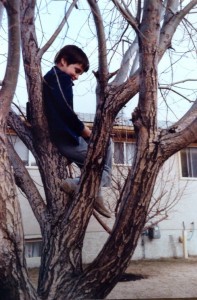Gavin Paul, one of our resident Shakespeare experts, has spent a lot of time pondering the mysteries of reading—why we do it, how to do it best, and the ways it helps us make sense of the world. As a lifelong lit lover, he’s had plenty of time to conclude that what he reads makes him who he is. He says,
I think about life as a story, life as a book broken into chapters or maybe just one long chapter, with scar tissue like torn pages or spots where the corners of the leaves have been turned over to mark something memorable.
He’s identified the source of his imagination: reading comics in childhood.
Picking up one of his old comics as an adult, he reflects,
I treasure it because it connects me to my nine-year-old self. And I treasure it because the comic encapsulates the sense of loss, isolation, and decay that reading both perpetuates and denies. I am all alone, I cannot fully share this act of reading with anyone else, and this book will one day crumble and turn to dust.
He’s given extensive thought to the joys of reading outdoors.
For example, his experience of reading Matterhorn by Karl Marlantes was visceral:
I am sitting on a balcony in southern British Columbia in late summer. I am pouring cheap cans of beer down my throat and sweating them out as soon as they hit my gut. The intense heat radiates off the smooth wall behind me and makes everything seem to blur and waver.
And, especially, he’s a huge fan of the often underrated and misunderstood act of re-reading.
Not everyone understands this, and not everyone feels this impulse to begin again. The act of reading is inherently progressive: it tends forward, toward the future, letter after letter, word after word, sentence after sentence, page after page. Rereading is a doubling: every movement forward is also a repetition, an echoing, a recalling.
Basically, Gavin suggests that we read because we are human—and to become more human and humane within ourselves.
For more musings on lit and life, see Gavin’s personal blog.


Comments are closed.